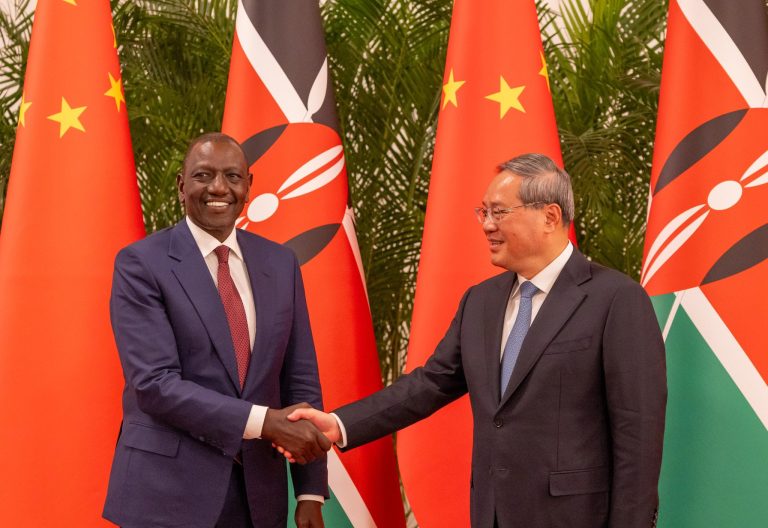Time to change tune on Kenya-China ties

President William Ruto’s upcoming eight-day visit to China offers a pivotal opportunity to recalibrate Kenya’s long-standing partnership with Beijing.
For more than two decades, China has been instrumental in Kenya’s infrastructural transformation, financing and building signature projects such as the Standard Gauge Railway and key highways that have improved mobility and regional integration.
However, this visit should not be business as usual. Ruto must now up Kenya’s game and shift the focus from primarily infrastructure financing to strategic economic cooperation that prioritises long-term national interests, particularly in the domains of manufacturing, technology transfer and foreign direct investment.
China remains one of Kenya’s largest bilateral creditors, with loans to Kenya estimated to comprise around 19 per cent of the country’s total external debt by early 2024.
While this support has been essential in addressing Kenya’s infrastructure deficit, it is now time to engage China beyond brick-and-mortar investments.
The global economy is rapidly transitioning to one driven by innovation, value addition and digital transformation.
Kenya cannot afford to lag behind. The country must leverage its deepening ties with China to attract more Chinese enterprises to invest directly in our productive sectors, especially manufacturing, ICT and green energy.
Ruto’s government outlined the Bottom-Up Economic Transformation Agenda, which hinges on reviving manufacturing, increasing export competitiveness and enhancing job creation.
China, as the world’s factory and a leader in smart manufacturing and digital infrastructure, is well placed to be a key partner in this transformation.
Beyond seeking more concessional loans to fund infrastructure, Kenya should encourage Chinese companies to establish assembly plants, industrial parks and innovation hubs within the country.
This shift would not only boost industrialisation but also generate employment, build local capacity and reduce the huge trade imbalance Kenya continues to face with China.
Moreover, Kenya should explore deeper collaboration in digital technology, fintech and e-commerce, where Chinese companies such as Alibaba and Huawei have already made notable inroads across Africa.
Kenya’s youthful population, entrepreneurial culture, and tech-savvy workforce make it an ideal destination for digital investments.
China’s Belt and Road Digital Silk Road initiative can be an avenue for partnership in this space, with such cooperation structured to ensure data sovereignty, local value addition and skills transfer.
There is also a growing global shift towards green and sustainable development. Kenya’s impressive progress in renewable energy, particularly geothermal and wind, should attract green FDI from Chinese firms committed to sustainability.
Ruto can seek cooperation in electric mobility, green construction and solar manufacturing. This would further support Kenya’s climate commitments while spurring economic growth and diversification.
The writer is a PhD student in International Relations














